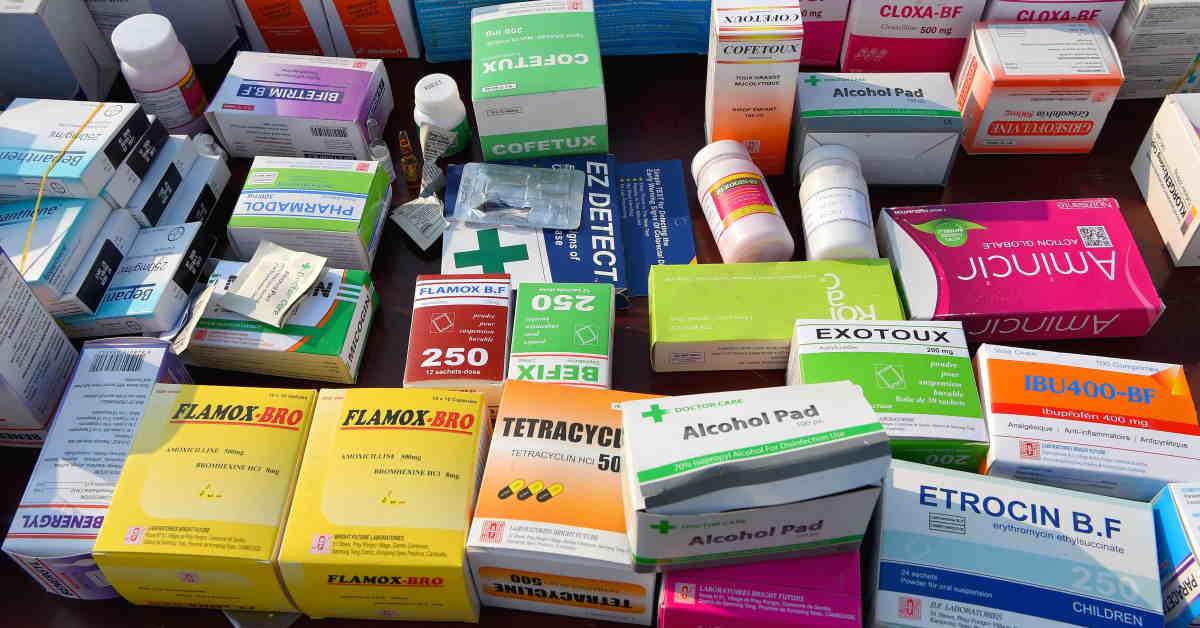ASEAN consumers increasingly turned to e-commerce to purchase food, masks, and other household items over the past 18 months while adhering to social distancing and lockdown measures. However, some unlucky shoppers also ended up buying counterfeit goods, as criminals also increasingly went online to dupe consumers.
Fakes - a persistent problem in many street markets across the region - are easier to disguise online behind a digital photo of an authentic product. After all, you cannot physically inspect an online product before you buy it.
But ASEAN is intensifying taking action against online counterfeits and raising awareness with the public by marking the first ASEAN IP Enforcement Week which closed on 24 September 2021. This follows the ASEAN Working Group on IP Cooperation (AWGIPC) adding new deliverables to fight online fakes in its recently released mid-term update to its 10-year Intellectual Property Rights Action Plan 2016-2025 (IPR Action Plan).
ASEAN Goes Online, Fakes Go Online
As of 2020, 400 million ASEAN citizens used the Internet, according to research conducted by Bain & Company in collaboration with, Google and Temasek. One-third of these users just started using digital services, including shopping online during the pandemic. Digital innovations ultimately helped keep people indoors and socially distanced.
But just as many retailers pivoted online to cater to consumers in lockdown, criminals also started to sell more fake goods online - particularly those products in high demand such as masks, hand sanitisers, and medicines. For example, the Consumer Association of Singapore reported nearly a three-fold increase in complaints about counterfeit goods being sold online last year.
Law enforcement across the world also took notice. INTERPOL, the international organization dedicated to cross-border criminal law enforcement, has been undertaking numerous operations to address the sale of falsified medicines and health products online, including in ASEAN.
Governments in ASEAN are also bringing together stakeholders to combat the sale of fakes online. The intellectual property offices of Thailand and the Philippines have been encouraging e-commerce platforms and brand owners to work together voluntarily to stymie the sale of fakes online by signing Memorandums of Understanding in January and March, respectively.
Even before the pandemic, the United Nations in a 2019 report on transnational organized crime in Southeast Asia presciently observed that “E-commerce will facilitate specific segments of this trade [in fakes] and will almost surely increase the range and scale of fake medicines available online.”
ASEAN Takes Aim
The recently updated IPR Action Plan includes two new deliverables addressing online enforcement.
One deliverable will be the creation of information exchange for online enforcement. Data is the key to striking back against counterfeiters. If governments in ASEAN share important data on the pattern of online infringement of IP rights, criminals will not be able to escape law enforcement by moving their operations to other countries in the region. Importantly, brand owners who proactively protect their brands online should be able to contribute to the information exchange.
Another new deliverable will be the creation of ASEAN guidelines for online enforcement. Guidelines will help harmonize the approach to fighting online counterfeits across the region. A consistent approach by ASEAN countries will make it easier for brand owners and consumers to identify fakes and report abuses while making it harder for criminals to evade detection.
As the ASEAN Economic Community progresses with initiatives such as the ASEAN Customs Single Window, goods will flow more easily across the region. A weak link in one country combatting online fakes will affect all others in the region as goods easily cross borders.
Best Practices For Companies
Action by governments in ASEAN is critical, but it is not the only solution to this growing problem.
A recently updated guide published by the International Trademark Association emphasizes that all stakeholders have a role to play to prevent the spread of online counterfeiting. This includes e-commerce platforms. The guide gives the following advice: e-commerce platforms should be proactive in finding and taking down listings of counterfeits, undertake due diligence to know the sellers on their platforms and work with brand owners and law enforcement by sharing information about counterfeits.
Evolution Of A Consensus Against Fakes
ASEAN has been working collectively on improving IPRs since the establishment of the ASEAN Working Group on IP Cooperation in the late 90s. But the view on counterfeits has been taking on more importance over the years.
Looking back at the previous three ASEAN IPR Action plans, we see a clear change in focus to recognize the danger of counterfeits. The 2004-2010 action plan does not include the word “counterfeit” while the subsequent 2011-2015 action plan mentions counterfeiting once. Now, the new plan presents eight deliverables to address the problem, including important awareness raising and data collection.
E-commerce will continue to grow in ASEAN. To keep consumers safe, governments, e-commerce platforms, and brand owners need to continue innovating to prevent the sale of counterfeits online. These recent amendments to the ASEAN IPR action plan clearly show ASEAN’s vision for a safe, resilient, and authentic digital future.
The views expressed in this article are the author’s own and do not necessarily reflect those of The ASEAN Post.

